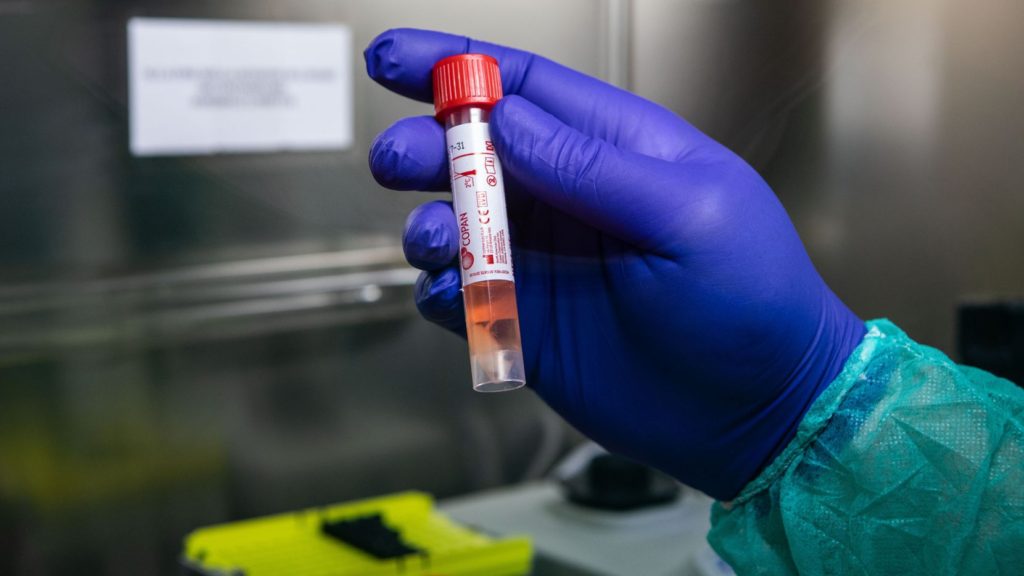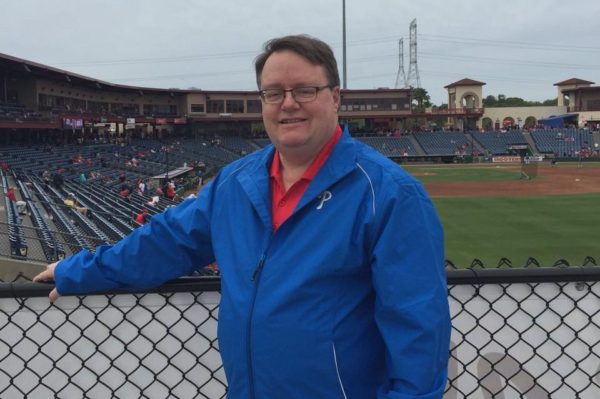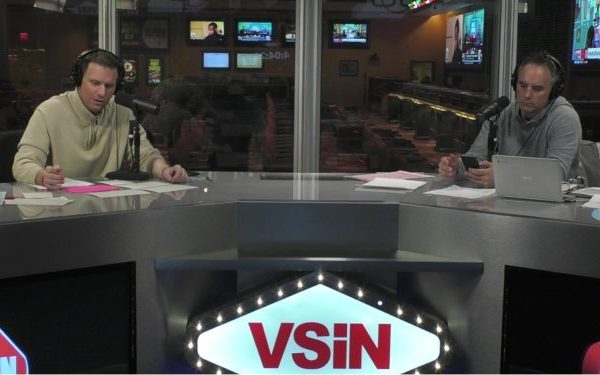A lot of program directors at sports radio stations are walking an unfamiliar tightrope right now. It is so much easier for hosts to be creative and not stick to sports during this global pandemic, that if it weren’t for the upcoming NFL Draft, sports news would be almost entirely on the back burner in favor of lifestyle topics and talking about Covid-19’s effects on daily life.

It’s very different in the news talk format. Not only is Covid-19 the A-topic. It’s topics B, C, and D as well. That kind of deep mining of a single subject for content is not uncommon in a format built around hosts that can use the color of a tie to carry a three-hour show about a politician’s patriotism, or lack thereof. Even on those stations though, sometimes it takes a news story of this magnitude to completely remove sports from the conversation.
“It honestly takes a worldwide pandemic to take the Cowboys out of the news cycle!” Kevin Graham, program director of WBAP in Dallas tells me when I ask if his station even has room for a sliver of Cowboys draft talk right now. “But yes, the NFL Draft does have a presence just for the fact many of our listeners are fans and looking for a distraction at times to all this virus coverage. While we won’t break players down etc. like a sports radio show would, our morning news shows will dedicate some time whether it’s a guest or just sharing general observations on the draft and who the Cowboys pick.”
Talk radio is talk radio. The same strategies and concepts that make sports talk stations and hosts successful can work in the news talk format as well. It’s why so many PDs have a foot in both worlds.
I spoke with four PDs. Two of them are currently programming both sports and talk stations. The other two transitioned away from sports and into the news talk world. Kevin Graham, for instance, programmed sports talk stations in New York, Salt Lake City, Phoenix, Detroit, Pittsburgh, Columbus and Boston before taking the plunge into news.

“Obviously there is nothing I can think of that rivals this once in a lifetime pandemic but the approach to our coverage is no different than when you’re involved with a local sports story or event,” Graham says. “Whether it’s a Super Bowl run or covering ‘Deflate Gate’ in Boston, where that news cycle ebbed and flowed daily, it’s how you present the information, image your brand around it, and most importantly guide and allow your personalities to be their authentic selves.
“Much like a championship run your talent is right in the middle of the story, right there with the listeners. You encourage them to be in the moment, to relate what they are going through, provide the information that is important as well as opinions and entertainment as warranted.”
“What we do see is that as much as this is a national story, it is truly about the local audience that the station serves,” says Scott Masteller. The program director of WBAL ran ESPN Radio from 2001 until 2014. Prior to that, he spent eight years running local sports stations in Portland, Salt Lake City, and Lexington, KY. He told me that one thing he learned in sports that has helped shape his philosophy for WBAL’s coverage of Covid-19 is that the local angle is always the most important.
“In sports radio, it is all about the LOCAL team that you cover on a daily basis. With COVID-19, it truly is about the state of Maryland, Baltimore, and surrounding communities. Whenever we carry local news events we see the consumption of content increase.”

Part of that local approach for an audience in San Diego is talking about the military’s relationship to the pandemic. Brian Long is the program director of XTRA Sports 1360 and news/talker KOGO. He says that his audience on both stations is full of people with a personal connection to the Navy.
“The military is huge in this town. It often feels like everyone you interact with is connected to someone in the service. We do take those military stories seriously and want to make sure we are covering them with the appropriate approach.”
Graham says that there is plenty that sports stations can do right now to make the most of being in the same building as a news/talk station. Adding news updates at the top and bottom go the hour he says is the most obvious move, but it is important to stay true to what your audience wants and expects when they turn on your station.
“I don’t think there is one formula to follow. It depends on your brand, market and the relationship you have with listeners. As a long time sports program director I feel for all my friends in that format right now having to make the decisions on how to cover this in addition to providing great content with no sports.”
Spike Eskin programs 94 WIP and talk station 1210 WPHT for Entercom in Philadelphia. I asked him if he was making an effort to find the balance between talking about Covid-19 and covering any news about the Eagles leading up to draft night.
“My only instruction to them regarding the Covid-19 situation has centered around two basic things: first, we’re not experts, and we’re not a news source for Covid-19 information, that’s what (sister station) KYW Newsradio is for. Second, we should always be thinking about what sort of lives our listeners are living right now, and find our best way to relate to them and provide what they need and want from 94WIP,” he said. “Maybe it’s an escape from the constant bombardment of bad news in other places, or an escape from long days of working at home (or not working at all). In a lot of ways, us talking about the Eagles and the NFL Draft could be something that our listeners depend on for a sense of normalcy, and a look ahead to when things are normal (whatever that means) again.”

I asked Eskin what the Covid-19 conversation sounds like on each of his stations. He said nothing is off-limits for one station that isn’t for the other, but there is a clear place where the two diverge in their coverage.
“The similarities is in what the listeners of each station are dealing with on a day-to-day basis, whether it’s grocery shopping, being around your family 24/7, a loss of normalcy and a fear of the present and the future,” Eskin says. “The difference exists in that WPHT is far, far, far more involved in the ins and outs of what’s actually happening with government decisions regarding how to handle the return to work, and how government decisions have affected where we are.”
Brian Long agrees with Eskin. He told me that there is some room for hosts on KOGO to talk about Covid-19 and social distancing from a lifestyle perspective like the hosts on XTRA Sports do, but the audience’s expectations dictate that KOGO serves a very specific purpose right now.
“I think it’s possible and encouraged at some level. I do however, think it’s important to remember that in times like these, new listeners are coming to a station like KOGO for real information not speculation. You wouldn’t want your news hosts to be speculating on the details of a serious story rather want them to stick to the facts from experts in the field etc. Having said that, you may give an opinion based talk host some latitude to engage in a more lifestyle approach on these heavy issues.”

Masteller is in a very unique boat. There are few PDs in the country that are as equipped to deal with social distancing on air as he is.
I asked him if his experience running ESPN Radio prepared him for running a station with a staff spread all over the place. He told me that it did, because he knows how important it is to over-communicate with your staff when you aren’t regularly face-to-face.
“From video conferences, to phone calls to e-mails it is all about the details. Making sure everyone is on the same page. It’s also so important to give recognition to the content team for the great job that they are doing every day to serve the listeners and the community,” he said. “It is also important to make sure that there is ongoing feedback being given to talent and production staff on a daily basis so that they receive support and encouragement.”
Sports hosts have had to be hyper-focused on local stories and ready to pivot on a dime from the moment they first got a shot to be on air. Talking to these programmers, it is clear that a sports radio mentality can prepare you for a lot, maybe even a global pandemic.

Demetri Ravanos is a columnist and features writer for Barrett Media. He is also the creator of The Sports Podcast Festival, and a previous host on the Chewing Clock and Media Noise podcasts. He occasionally fills in on stations across the Carolinas in addition to hosting Panthers and College Football podcasts. His radio resume includes stops at WAVH and WZEW in Mobile, AL, WBPT in Birmingham, AL and WBBB, WPTK and WDNC in Raleigh, NC.
You can find him on Twitter @DemetriRavanos or reach him by email at DemetriTheGreek@gmail.com.








